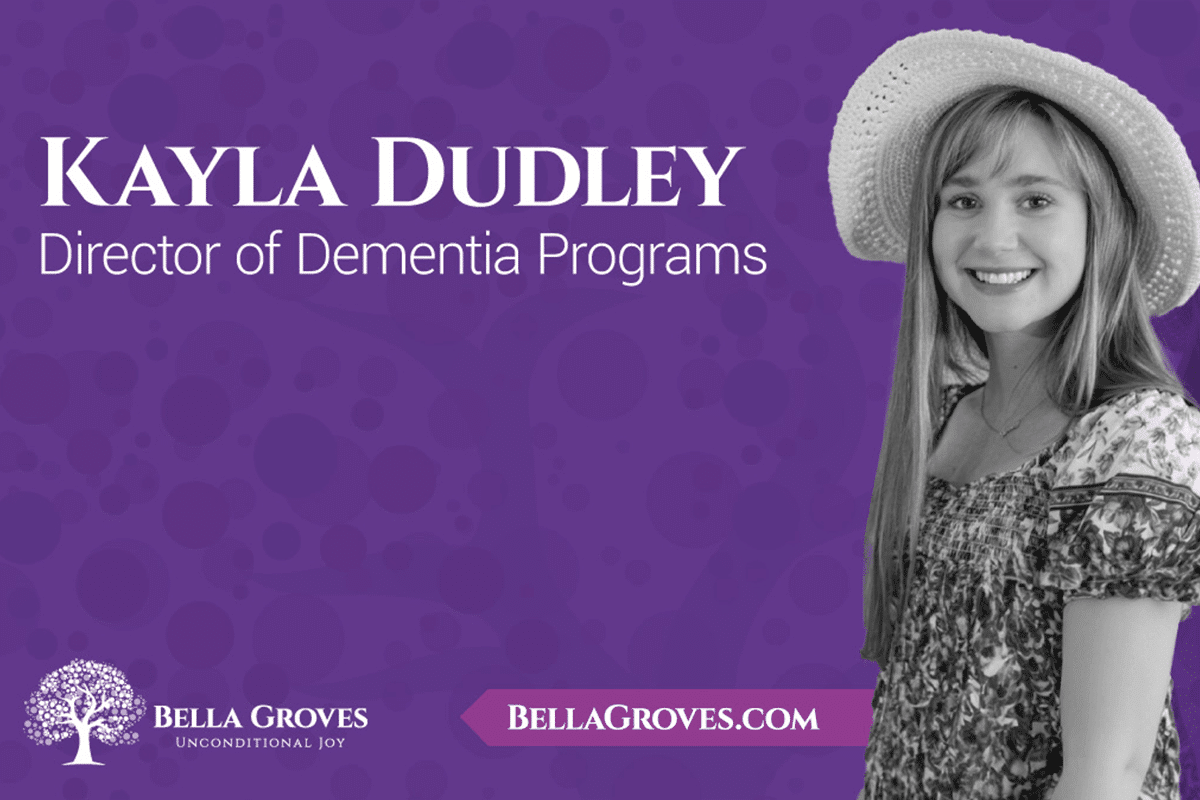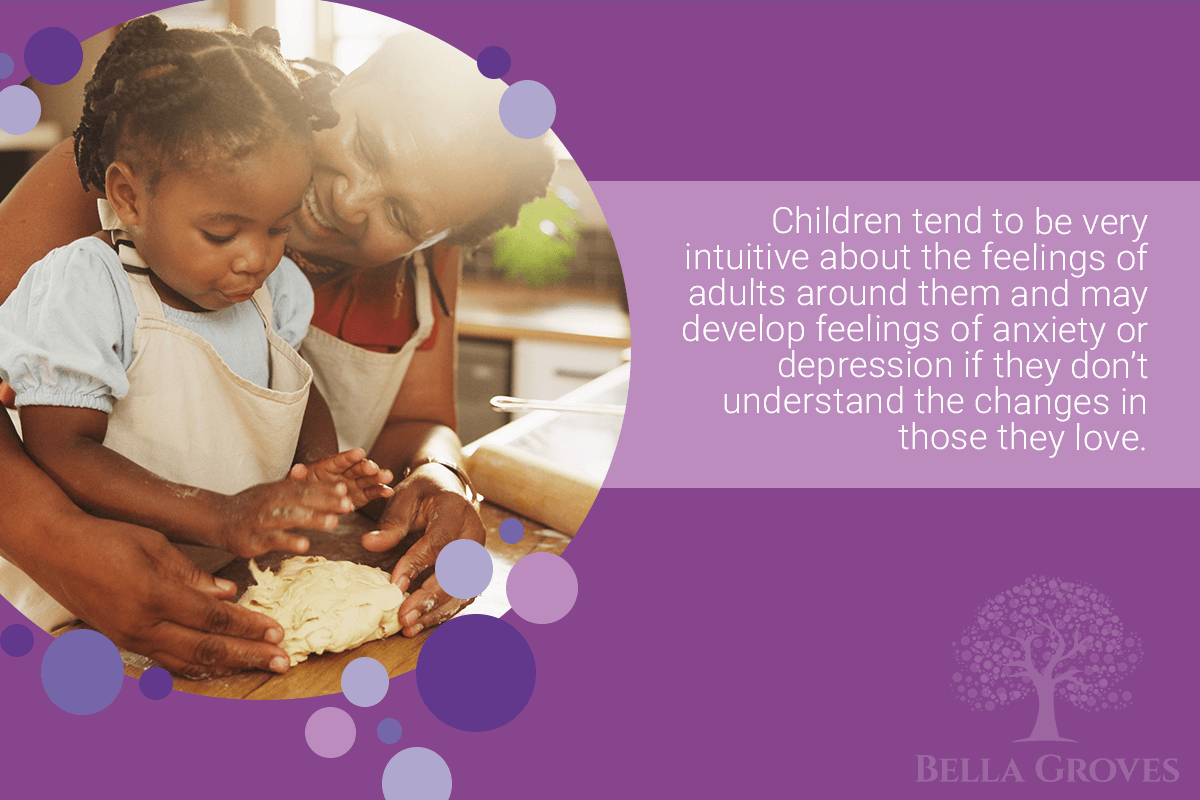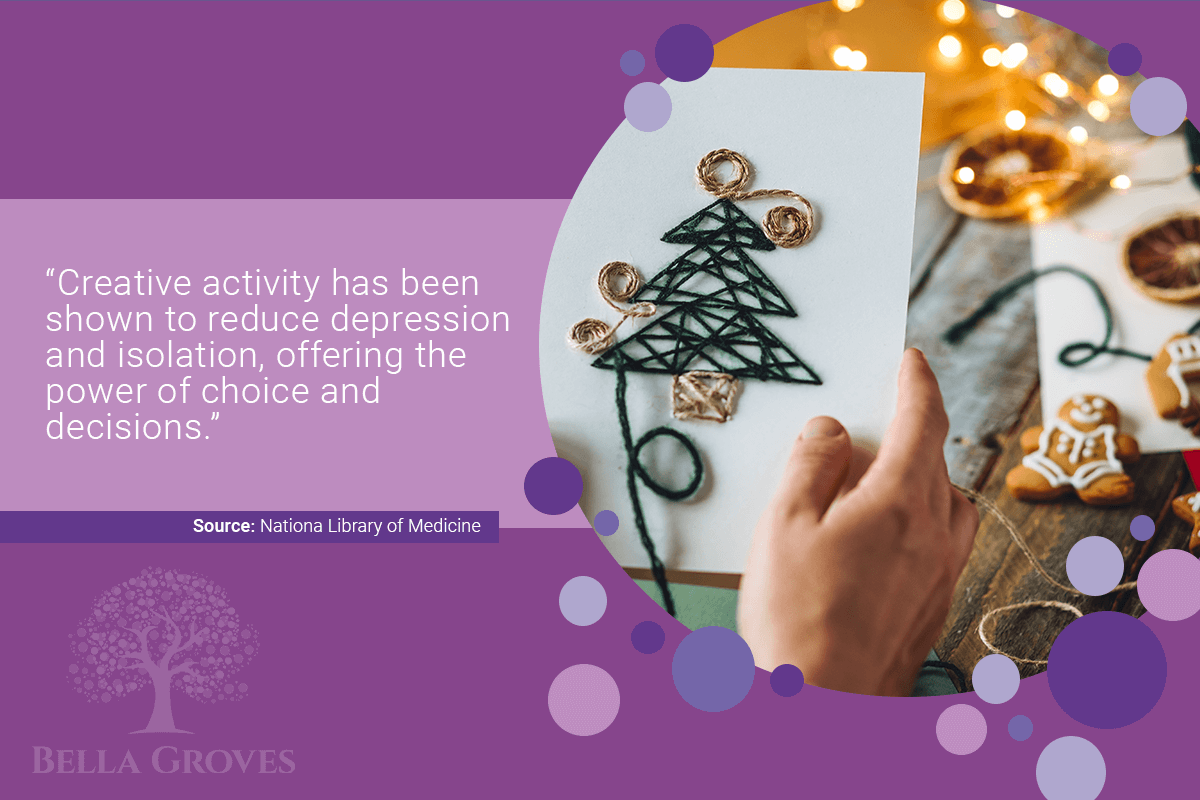
Rethinking Risk and Dementia
Written By: Kayla Dudley
Do the benefits outweigh the potential risks when it comes to pursuing bold activity engagements for persons living with dementia? At Bella Groves, we believe that this is a question that many in the senior care industry do not even dare to ask themselves. After all, it’s “better to be safe than sorry, right?” Well, maybe not…
The very first time we took our residents to the local woodworking shop, The Vintage Barn in Bulverde, Texas, we have to admit that both family members and staff were biting their nails at the sight of persons living with dementia working with spinning saws and sanders! As one of our family members expressed in our monthly support group, “I was really nervous at first with (husband’s name) around power tools.” Another wife reflected, “I just had to turn the other way because I had to trust that there were competent people present.” These are the same family members who began to look forward to the bi-monthly visits to the Vintage Barn, where three of our male residents have successfully painted, sanded, and sawed many projects. So far, they have assisted in making personal shelves, paper towel holders, birdhouses, and more. These are projects that they can be proud of and bring home with them to our Bella Groves community.
At Bella Groves, we are big believers in a concept called “Whole-Person Vitality.” This means that we seek to embrace each of our residents as a whole individual, with their unique physical, spiritual, mental, and emotional needs. Ensuring their quality of life through normalized living requires risk-taking to be part of our vocabulary.
Normalizing Risk-Taking
Every single day of our lives, whether we are living with dementia or not, we take risks. When we crawl out of bed in the morning and head to work, we risk getting into an accident. When we sit in our office chair, we risk the chair breaking and gravity taking its course as we hit the hard floor below. When we order take-out, we risk getting food poisoning.
Perhaps the bigger risk, though, is living every day avoiding the “what-ifs” that are a part of the human experience. Without risks, we would have no quality of life. Our existence would be monotonous and—quite frankly—non-existent.
This is no different for someone living with dementia.
Somewhere along the way, likely due to a lack of training and first-hand experience, individuals developed the idea that risks and dementia should not be used in the same sentence. After all, living with dementia is already a huge series of risks, isn’t it? Falls, angry outbursts, leaving home and getting lost, etc.
As care partners, we are trained to keep the person living with dementia as physically safe as possible, which often makes their worlds very small. While the individual’s physical safety may be flourishing, the quality of their life, joy, and mental health might be suffering. At a minimum, it may not be as rich as it has the potential to be.
- “Lock the doors.”
- “Don’t let them out.”
- “Make sure they stay in their wheelchair. Walking is too risky.”
We should take a minute to think about how much our society has reduced the lives of those living with dementia. This is not the kind of life we would want for ourselves, so we must stop thinking it’s okay for this to be the standard of living we impose upon those with this disease.
Everything in Life Comes with Risks
At Bella Groves, when a resident asks to be “let outside” so that they can “go home,” our care team opens the door and goes outside with them. They ask them questions such as, “Does this look familiar?” or “Where is home for you?” As a result, they maintain trust with that resident, validate their experience, and let them come to their own conclusion about their environment. Most communities are taught to keep a tight lock on the door, redirect the residents if they want to leave, and ignore what they are experiencing at the moment (the need to “go home”). This naturally leads to arguments among residents and care staff as well as the feeling among persons living with dementia that they are “not safe” or are “trapped” in the environment that is supposedly “safest” for them.
Just because the general population is not educated on how to approach those living with dementia does not mean that we keep this population of people in a bubble. At Bella Groves, we take our residents out into the community to live as normal of a life as possible. We ask ourselves, “If this resident wasn’t living with dementia, what would they be doing right now?” We use knowledge of their background as well as their current abilities and preferences to inform how we create an environment that fosters their sense of purpose. Our community calendar is full of monthly outings that encapsulate normalized living: trips to a nearby town for lunch, pottery art, visits to the nail salon, ice cream stops, equine therapy, hay rides, trunk-or-treat for Halloween, Christmas tree decorating, parties, memberships to the local quilting club, and so much more. The person living with dementia’s world should not stop just because our society lacks understanding. At Bella Groves, we seek to educate others through collaboration and education, and therefore strive towards dementia-friendly communities! The fear is often that normalized living is too risky in conjunction with cognitive impairment and other comorbid conditions, but we have seen too much joy to believe that the cons could ever catch up with the pros in this regard.
In our community, residents help us daily with “riskier” projects such as putting up a clothesline, setting the table for meals, watering the plants in the garden, taking our community pets for a walk, folding clothes, sweeping floors, disinfecting surfaces, assisting other residents who are more advanced in the disease process, and more.
As we all know, we have one life on this earth. Let’s lead a life worth living and help individuals with dementia do the same!
As one of our residents’ family members expressed: “I applaud Bella Groves’ approach, as anything we do in life can carry risk with it.”
If you have questions about caring for a loved one living with dementia, care partner support and resources, community collaborations, or making a difference in the way the world perceives this disease, reach out to us at Bella Groves. We would be delighted to hear from you!


